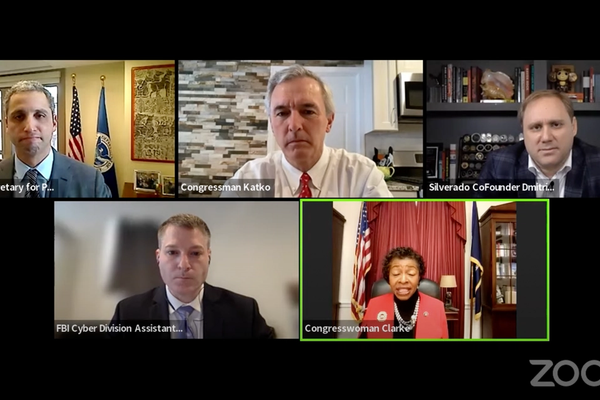
• Jul 21, 2021
Lawfare: Was the White House's Response to the Microsoft Exchange Servers Enough?Dmitri Alperovitch and Ian Ward argue that the U.S. should impose sanctions in Chinese officials for their role in the Microsoft Exchange hacks.
In a new op-ed for the New York Times, Silverado's Co-Founder Dmitri Alperovitch argues that the U.S. should go on the offensive to stop ransomware.

Table of contents
No headers found in content
Author
Dmitri Alperovitch
Research Team
Subscribe to our newsletter
SubscribeIn a new op-ed for the the New York Times, Silverado's Co-Founder and Executive Chairman Dmitri Alperovitch argues that America won't be able to defend its way out of the ransomware threat. Instead, the U.S. needs to go on the offensive by conducting cyber operations that makes it more difficult for adversaries to carry out attacks.
"To combat the ransomware problem, the Biden administration has so far taken a two-prong approach: concerted diplomacy with nations harboring cybercriminals and expanded defensive capabilities at home. These are critically important efforts. But to really address the issue, the administration must develop an offensive strategy, too — and fight back."
Read Dmitri's full op-ed here.
Explore more insights and analysis from our research team.

• Jul 21, 2021
Lawfare: Was the White House's Response to the Microsoft Exchange Servers Enough?Dmitri Alperovitch and Ian Ward argue that the U.S. should impose sanctions in Chinese officials for their role in the Microsoft Exchange hacks.

Dmitri Alperovitch and Ian Ward • Mar 12, 2021
Lawfare: How Should the U.S. Respond to the SolarWinds and Microsoft Hacks?The major U.S. companies have been hacked in the past two months. How should the government respond?

Silverado Policy Accelerator • Jan 13, 2022
Event Recap: 2022 Cybersecurity Policy PrioritiesSummary of Silverado's event, "2022 Cybersecurity Priorities: Perspectives from the Legislative and Executive Branches"